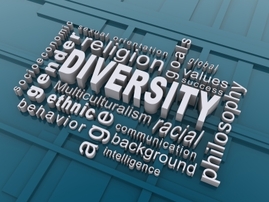Most organisations have quite rightly invested significantly in recent years to raise awareness of and diversity proof their operations, but as economic regulation and self financing of the HRA for councils ushers in a new era of commercial reality across the sector, should equality and diversity be exempt from consideration of whether better value for money could be achieved?

eeeee
Ensuring strategic priorities, access to and outcomes of services met Equality and Diversity legislative and regulatory requirements have been high on the agenda of many housing organisations in recent years – as the audit commission repeatedly downgraded star ratings for apparent failures to meet the diversity Key Line of Enquiry, and legislative requirements have placed an onus on organisations to do more than just monitor, but actively promote diversity in their business.
Over the course of the last year we have taken a close look at key areas of the housing business from a value for money perspective – including resident involvement, responsive repairs, and most recently IT, and a recent publication by Professor Peter Saunders (The Rise of the Equalities Industry) caught our eye and got us thinking about the price of equality.
Most organisation’s we’ve come across (and certainly most of the sector wide benchmarking we’ve come across) don’t necessarily account for the cost of diversity activities in the same way as they might for core operations or ‘overheads’ such as communications and marketing, so it will be difficult to gauge just how much they are costing the sector. However, there are undoubtedly costs which are associated with diversity – whether they are compulsory from a legislative or regulatory standards point of view, or optional in terms of added value which organisations think such activities might bring. There will also be clear costs associated with staff, managers, consultants and training.
In the Rise of the Equalities Industry, Professor Saunders highlights that the associated costs of equalities monitoring alone amount each year to an estimated:
In hard times, tough choices have to be made. The recent 2011 British Social Attitudes Survey shows a marked change in social attitudes over recent years which are not necessarily linked to the current economic times, with a distinct hardening of social attitudes towards ‘fairness’ in society backed up by research carried out earlier this year by Policy Exchange. It found there was high support for a fair society, but as Neil O Brien, Policy Exchange director said recently, ‘The majority of people think that fairness is mainly a question of people getting what they deserve, rather than being about equal treatment. In other words, people’s ideas of fairness are strongly reciprocal – something for something’,
At a time when key welfare reforms are imminent and will be not just be affecting housing organisation’s income, but also their customers pockets through reduced entitlements and limits on the amount of Housing Benefit payable for ‘underoccupiers’, is it not time to review the value for money of diversity activities in the same way that other ‘core’ areas of business’ have been, for example through lean reviews, Social Return on Investment or Cost/benefit analyses?
Over the course of the last year we have taken a close look at key areas of the housing business from a value for money perspective – including resident involvement, responsive repairs, and most recently IT, and a recent publication by Professor Peter Saunders (The Rise of the Equalities Industry) caught our eye and got us thinking about the price of equality.
Most organisation’s we’ve come across (and certainly most of the sector wide benchmarking we’ve come across) don’t necessarily account for the cost of diversity activities in the same way as they might for core operations or ‘overheads’ such as communications and marketing, so it will be difficult to gauge just how much they are costing the sector. However, there are undoubtedly costs which are associated with diversity – whether they are compulsory from a legislative or regulatory standards point of view, or optional in terms of added value which organisations think such activities might bring. There will also be clear costs associated with staff, managers, consultants and training.
In the Rise of the Equalities Industry, Professor Saunders highlights that the associated costs of equalities monitoring alone amount each year to an estimated:
- £150 million in the service sector
- £35 million in manufacturing
- £25 million in construction
- £210 million across small and medium-sized businesses &
- Between £300 million and £400 million across the whole private sector
In hard times, tough choices have to be made. The recent 2011 British Social Attitudes Survey shows a marked change in social attitudes over recent years which are not necessarily linked to the current economic times, with a distinct hardening of social attitudes towards ‘fairness’ in society backed up by research carried out earlier this year by Policy Exchange. It found there was high support for a fair society, but as Neil O Brien, Policy Exchange director said recently, ‘The majority of people think that fairness is mainly a question of people getting what they deserve, rather than being about equal treatment. In other words, people’s ideas of fairness are strongly reciprocal – something for something’,
At a time when key welfare reforms are imminent and will be not just be affecting housing organisation’s income, but also their customers pockets through reduced entitlements and limits on the amount of Housing Benefit payable for ‘underoccupiers’, is it not time to review the value for money of diversity activities in the same way that other ‘core’ areas of business’ have been, for example through lean reviews, Social Return on Investment or Cost/benefit analyses?

 RSS Feed
RSS Feed
